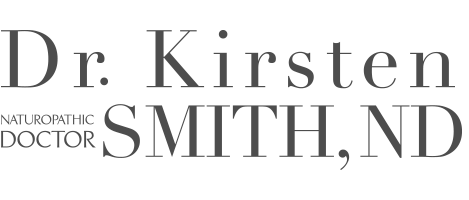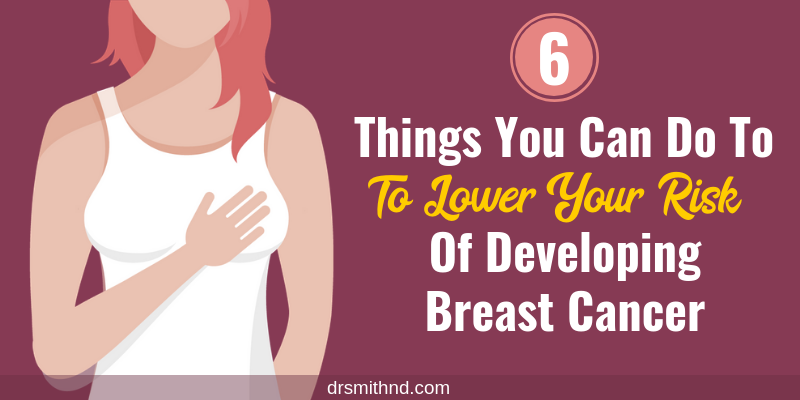Every October, research and advocacy organizations around the world come together to launch Breast Cancer Awareness Month, a campaign that hopes to increase awareness of the disease and raise much needed funds for research.
The need for this campaign is more than evident: although survival rates have increased in the last few decades, breast cancer remains extremely pervasive.
Breast Cancer Quick Facts
According to the Canadian Cancer Society, in 2017:
- Today, 1 in 8 Canadian women are diagnosed with the disease, making it the most common type of cancer affecting women in this country.
- 5,000 women died from breast cancer. This represents 13% of all cancer deaths in women in 2017.
- On average, 72 Canadian women were diagnosed with breast cancer every day.
- On average, 14 Canadian women died from breast cancer every day.
- 5-year-net survival rate for breast cancer is 87%.
Okay so enough fear mongering already. What are we going to do about it?
LOTS. Because here’s the thing: many of these cases can, in fact, be prevented.
Although inherited genetic mutations can elevate risk and possibly cause some breast cancers, certain habits that lie within our control such as drinking, smoking, overeating and being sedentary have been scientifically proven – repeatedly – to increase our risk of developing breast cancer.
Additionally, emerging research shows that exposure to certain chemicals in the air, water and soil interfere with hormones and various bodily functions, and can thus act as carcinogens, meaning they can play a role in causing cancer.
We can make choices that decrease our exposures to these carcinogenic toxicants, and we must.
While I think it’s safe to say that we all find breast cancer really frightening, we have to move our minds to a more empowered position and take action because the fact is, we can actually do things that de-escalate our risk.
A Brief Review Of What We Can’t Control… Genetics
Research has established that some women have a strong genetic predisposition to develop breast cancer. This genetic lottery causes some women to inherit a mutation in genes called BRCA1 and BRCA2, which elevate the risk of developing breast cancers.
These mutations, along with others, are found in about 20-25% of all breast cancer cases. It is important to note, however, that having these markers doesn’t mean you will definitely get breast cancer (and conversely, not having them is no guarantee you’re not getting it either), they just elevate risk.
6 Things You Can Do Now To Lower Your Risk of Developing Breast Cancer
While researchers are still trying to understand exactly what causes breast cancers, the science points to an interplay between genetic and environmental factors that increase our risk.
1. Food Glorious Food…
Various dietary factors have been highlighted in the research to be of significant interest in terms of impacting risk.
According to one study, the consumption of processed food increased the risk of developing breast cancer by 10%.
While another study found that “that grilled meat and high-cholesterol food intake and irregular eating habits may be associated with a higher risk of breast cancer.”
Other research has shown that the following dietary changes can decrease your risk of developing this deadly disease:
Eat organic, fresh, pesticide-free food
- Eat a primarily a Mediterranean diet/ more plant-based*
- Eat mindfully and avoid rushing during meal times
- Eat with a 12 hour (minimum) fast overnight every night
- Eat low-glycemic carbohydrates (blood sugar stabilization is important)
- Eat lots of fiber…it helps us detox carcinogenic compounds*
- Avoid preservatives and processed foods
- Avoid canned food / plastics on foods – plastics are xenoestrogens (which elevate cancer risk). Replace your Tupperware with glass or ceramic. Absolutely no microwaving in plastics or food covered in wrap.
So…What Should We Be Eating?
- Antioxidants (berries, acai, pomegranate, dark chocolate, all fruits and veggies that are dark in pigment/ colourful)
- Legumes – an awesome source of fiber and protein
- Quinoa, chia, slow cooked oats, ground flaxseed
- Nuts and seeds (raw, unroasted, unflavoured)
- Healthy fats (raw coconut oil, avocado, omega 3s, pure dark green bitter olive oil)
- Cabbage, brussel sprouts, kale, cauliflower, broccoli – the research on these is particularly amazing**!
- Shitake, Reishi, turkey tail mushrooms
- Dark leafy greens
2. Move that Bod, Lady
Regular exercise is an extremely efficient and easy way to decrease your chances of developing breast cancer, as is maintaining a healthy weight.*
According to the American Cancer Society, studies conducted over the past 20 years have shown that an increase in physical activity is directly linked to a lower breast cancer risk.
Why this happens is not fully understood, although many experts believe that it has to do with the fact that physical activity regulates hormones including estrogen and insulin, which can fuel breast cancer growth. It also helps us to better detoxify not just our bodies own metabolites, but toxicants that are carcinogenic.
Regular exercise also helps us stay lean, which is essential in terms of reducing the potential for having too much estrogen (which can be made in fat) and helps support immune function.
This is critical to register in your mind: studies show that even being 10-15lbs over weight greatly increases your risk of developing breast cancer because estrogen develops in fat…
3. Smoking. Seriously? (Someone out there still smokes?)
According to experts from breastcancer.org, cigarettes contain a number of toxins that are linked to a higher risk of breast cancer in younger, premenopausal women.
Research is also showing there may be a link between heavy second-hand smoke exposure and breast cancer risk in postmenopausal women.
Smoking also can increase complications from breast cancer treatment, including:
- damage to the lungs from radiation therapy
- difficulty healing after surgery and breast reconstruction
- higher risk of blood clots when taking hormonal therapy medicines
4. Cap the Booze
Research shows repeatedly that alcohol is an all-cause carcinogen, however, there is also research connecting it directly to breast cancer with over-consumption increasing a woman’s risk of developing breast cancer by up to 15%.
This occurs because alcohol increases levels of estrogen and other hormones associated with a type of breast cancer known as hormone-receptor-positive breast cancer. Alcohol also may increase breast cancer risk by damaging DNA in cells.
So What is “Over Consumption”?
Experts and doctors recommend less than 5 drinks per week (maximum) to reduce your risk, and in some cases, further reduction is recommended if for example you already have a variety of other risks in play*.
This will not only allow you to maintain your hormones at a healthy level, but it will also help you maintain your weight and function at your best.
5. Stress Management (as ever, is crucial)
Researchers are only now starting to look at the connection between stress and breast cancer.
While the evidence isn’t completely conclusive at this point, researchers are concerned that due to the impact of stress on the neuroendocrine and immune systems, this could likely escalate risk.
Given this relationship, it is wise to regulate stress to allow your immune system to help it fight potential cancer cells and to avoid negatively impacting your hormones. This can be done in a number of ways of course including meditation, yoga, therapy and regular exercise, to name a few.
One of the most important reasons to do this is to improve your quality of sleep. A 2012 study found that women who chronically lacked sleep developed more aggressive breast cancers.
These findings suggested there may be a link between long term sleep deprivation and the development of more aggressive tumors. Sleep deprivation is a major stressor for the body.*
6. Screening…?
By now, most of us know that early detection is incredibly important. Most doctors suggest that women over the age of 40 get annual mammograms however some recommend longer gaps between imaging. It is wise to have a conversation with your doctor about your individual case and what approach to screening makes sense for you.
While imaging is important, it is also valuable for women to get blood tests that promote prevention and optimal health because there are so many ways we can respond to this research.
Blood sugar optimization, hormone balancing, nutritional work, lifestyle changes, diagnosing and treating the root of your insomnia, addressing critical vitamin deficiencies (such as Vitamin D which also elevates cancer risk if low), all contribute to not only making you experience a whole new you in the now, it is PREVENTION.
In my practice, I order blood work that typically spans well beyond what you may get at your annual physical (if it’s annual), examining a spectrum of hormones, vitamin levels, liver and kidney function, inflammation and blood sugar markers, all of which provide me with key information.
When a patient has concerning family or personal medical history pertaining elevating the risk of breast cancer, I will also order DUTCH testing or dry urine testing which shows us not just your hormone levels but if you are pushing towards the types of estrogen metabolites that damage DNA and elevate your risk.
In some cases, I will also order environmental toxicant testing after taking a thorough environmental exposure history regarding residential, occupational, food, medical and dental exposures – and when this intake indicates there may be a problem. Once I’ve identified if there are unsafe levels of heavy metals, solvents, pesticides, herbicides, phthalates and other chemicals I create a medically supervised cleansing program and commence detox.. The fabulous news is that you can drastically reduce these levels with a doctor trained in environmental medicine.
Since we know that many of these factors are influential in this disease, this working with this approach to your health is a way to be more on top of your game.
So, What Next?
- Keen on prevention?
- Want to stay in remission?
- Concerned due to breast cancer being in your family?
- Concerned about your lifestyle?
Book an appointment
Take care of YOU. (You can’t take care of everybody else unless your oxygen mask is on first.)
Not only can I help give you the tools you need to get going with healthy habits, but we will work to get your labs values back into a range that is humming which also typically results in feeling vital and energized.
For a complimentary 15-minute consultation with me (in the office or by phone) to discuss your unique situation please call us at EnviroMed Clinic at (416) 929-0707.



